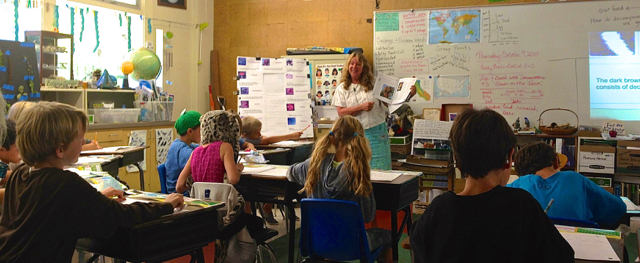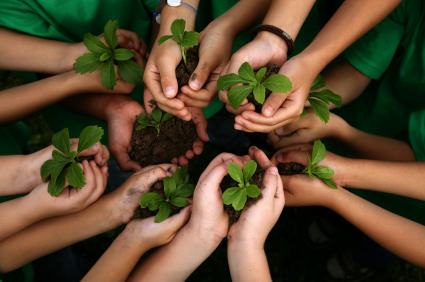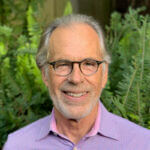We humans have a big problem facing our fragile species: our climate is changing more quickly than we can adapt. The only time the climate has changed as fast as it is changing now is when an asteroid hit the earth 60 million years ago—the Cretaceous–Paleogene extinction event—causing a mass extinction of some three-quarters of plant and animal species on Earth. That event marked the end of the Cretaceous period, and with it the entire Mesozoic Era, opening the Cenozoic Era that continues to this day. The geological history of the Earth shows that without adaptation species become extinct—and species cannot adapt as fast as some geological changes require (i.e., an asteroid strike or rapid and extreme climate change).

We need solutions to the negative impact on Earth’s systems to avoid a man-made extinction event.
Paul Hawken tackles the problem through a business perspective, and he writes about this in his book The Ecology of Commerce, and through his current initiative, “Draw Down”. Bill McKibben uses activism and warns us about “game over.” Tom Steyer committed to funding political campaigns in seven states to influence climate change policy. At Ten Strands, we work with the public school system to promote environmental literacy. Through these combined efforts, and many more, I believe our species will find ways to minimize the impact of climate change.
Across the country, there is a sense that we need a new educational approach to prepare our students for 21st century citizenship. Witness the move to adopt new academic content standards for students (such as the Next Generation Science Standards as well as the Common Core State Standards) and the focus on STEM. In this era of change, it’s time for a new kind of environmental education too.
Environmental literacy is so broad it can’t possibly be addressed by just one or two field trips a year (and even that’s hard for some schools). At Ten Strands, we want to make sure all teachers have access to educational materials across core subject areas that tie a critical mass of their lessons to the environment, so lessons about the environment become a day-to-day event rather than an occasional one.
For example, in science, what impact can nanotechnology have on battery storage capacity to get us off fossil fuels? In economics, what if supply and demand were taught using natural systems like the ocean being the factory and the salmon being the product (found here in this unit: Sustaining Economies and the Earth’s Resources)? Since we launched Ten Strands in early 2013, well over 5,000 teachers in California are successfully teaching lessons tied to the environment, and they appreciate how much more engaged their students are. In fact, in a recent survey of over 3,400 teachers 95% reported that their students were more or much more engaged when their local environment was used to provide rich and authentic contexts for learning.
I’ve had a wide and varied career. I’ve been a lawyer, founded startups, run nonprofits, and I taught for a decade in the public school system. I’ve never been more excited than I am now doing the work we’re doing at Ten Strands.
We have established a private-public partnership with the California Department of Resources Recycling and Recovery (CalRecycle). It’s the state agency that leads the call for environment-based education. With our help, that agency delivers instructional materials using the environment for context at six times the rate than before our involvement—and the pace is growing almost faster than we can keep up with. Teachers love using the environment as a context for their teaching so much that 97% surveyed say they want to keep doing it, and they want more of it!
We need not only immediate action to deal with climate change, but also a population who understand that we can only have the goods and services that we rely on if we have healthy ecosystems.
Ten Strands is part of the movement of millions saying we want healthy food, healthy water, healthy soils, and healthy air—we want not only to survive, but also to thrive! Ten Strands has chosen to focus on the public school system, because there is no other institution that works with students from all demographics, all income levels, and all ethnicities.
We need human ingenuity based on knowledge of cause and effect, on science, and on emotional ties to surrounding environments for a healthy future. With teachers in our public schools teaching their subjects with materials that, from time to time, include connections to the environment, the pool of solution-finders will be much bigger. Those scientists, engineers, physicists, and teachers coming from an environmental perspective will produce ideas for climate change solutions to ensure that together with other massive efforts to avert the worst effects of climate change, humanity will continue to thrive.



